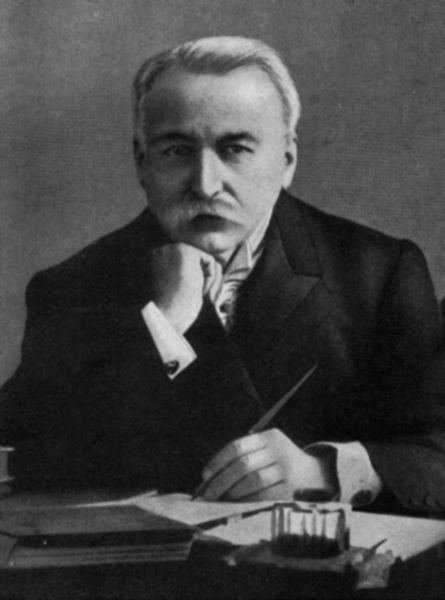AUGUSTE ESCOFFIER
Auguste Escoffier. 1846-1935
 Les Dames d’Escoffier proudly wears the name of one of the most innovative chefs in history, whose philosophy and achievements continue to serve as both a model and inspiration to today’s culinary professionals.
Les Dames d’Escoffier proudly wears the name of one of the most innovative chefs in history, whose philosophy and achievements continue to serve as both a model and inspiration to today’s culinary professionals.
Georges Auguste Escoffier (28 October 1846 – 12 February 1935) was a French chef, restaurateur, and culinary writer who popularized and updated traditional French cooking methods. He is legendary figure among chefs and gourmets, and was one of the most important leaders in the development and popularity of modern French cuisine.
Much of Escoffier’s technique was based on that of Antoine Carême, one of the codifiers of French haute cuisine, but Escoffier’s achievement was to simplify and modernize Carême’s elaborate and ornate style. Referred to by the French press as “Emperor of the world kitchens,” Escoffier was France’s pre-eminent chef in the early part of the 20th century.
Alongside the recipes he recorded and invented, another of Escoffier’s contributions to cooking was to elevate it to the status of a respected profession by introducing organized discipline to his kitchens. He organized his kitchens by the brigade de cuisine system, a single integrated unit with each section run by a chef de partie.
In 1903, Escoffier published Le Guide Culinaire, which is still used as a major reference work, both in the form of a cookbook and a textbook on cooking, and later published Le Levre des Menus (1912) and Ma Cuisine (1934). He was named a Chevalier of the Legion d’Honneur in 1920 and an Officer in 1928 by the Frency government. Escoffier’s recipes, techniques, and approaches to kitchen management remain highly influential today, and have been adopted by chefs and restaurants not only in France, but also throughout the world.
Escoffier’s great-grandson, Michel, has kept this great culinary tradition alive. He is president of the August Escoffier Foundation and Museum in Villeneuve-Loubet near Nice, France.

